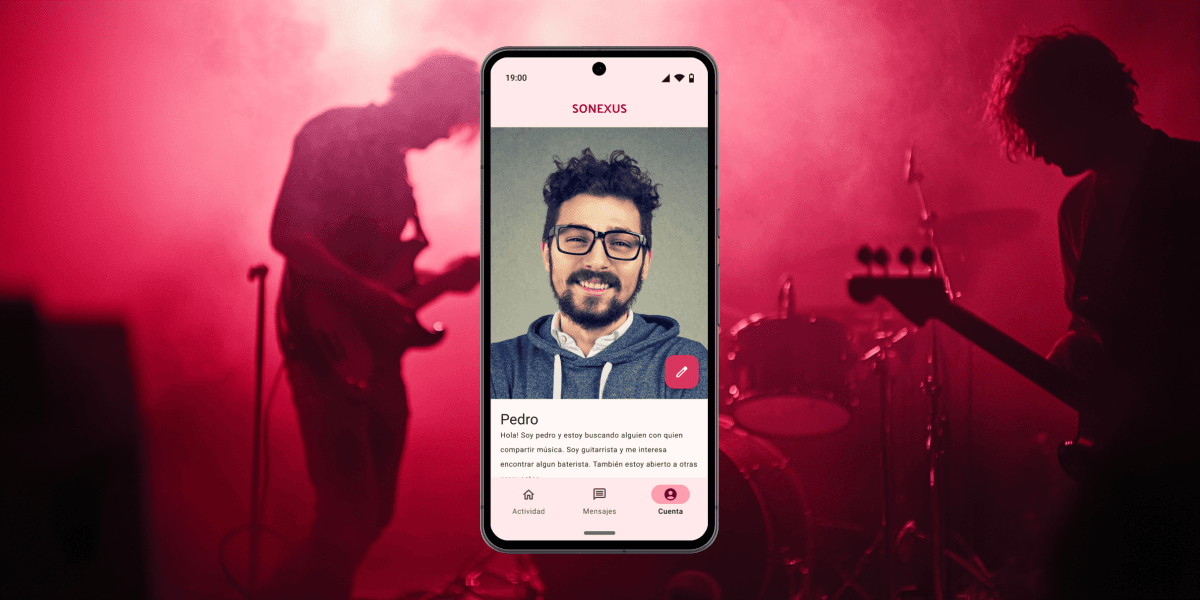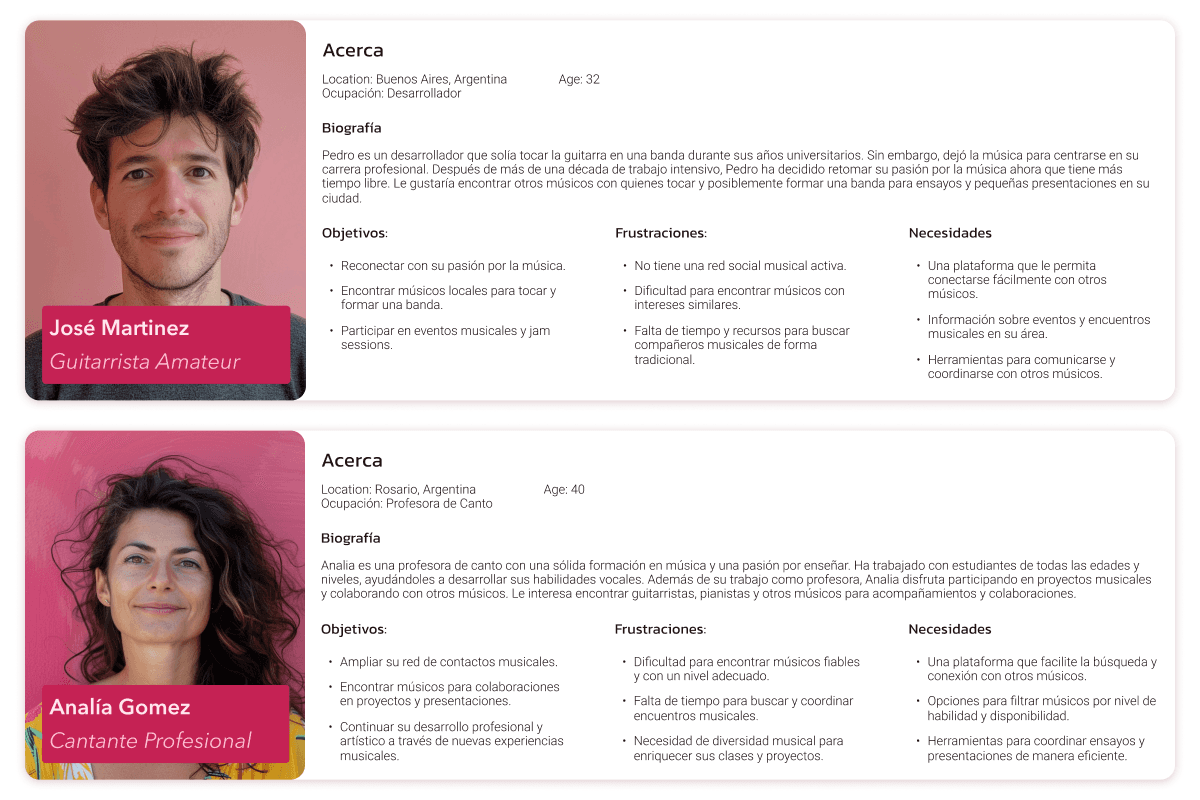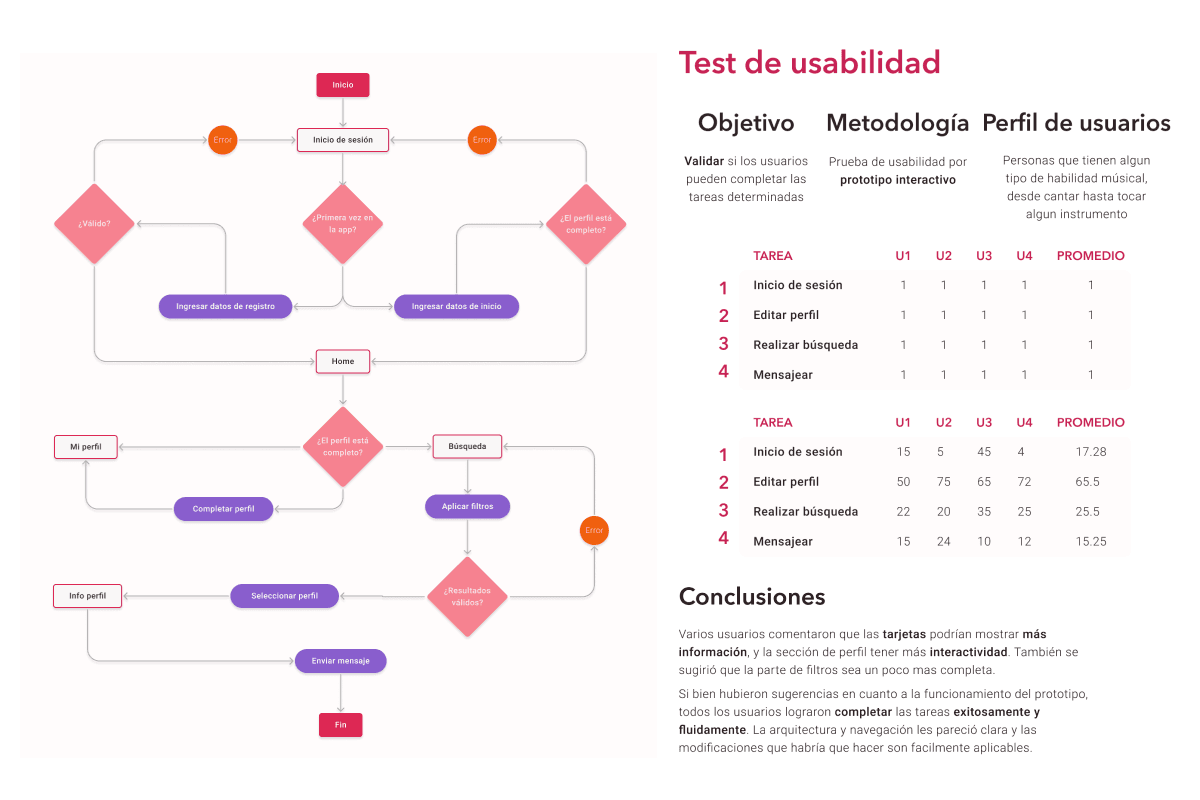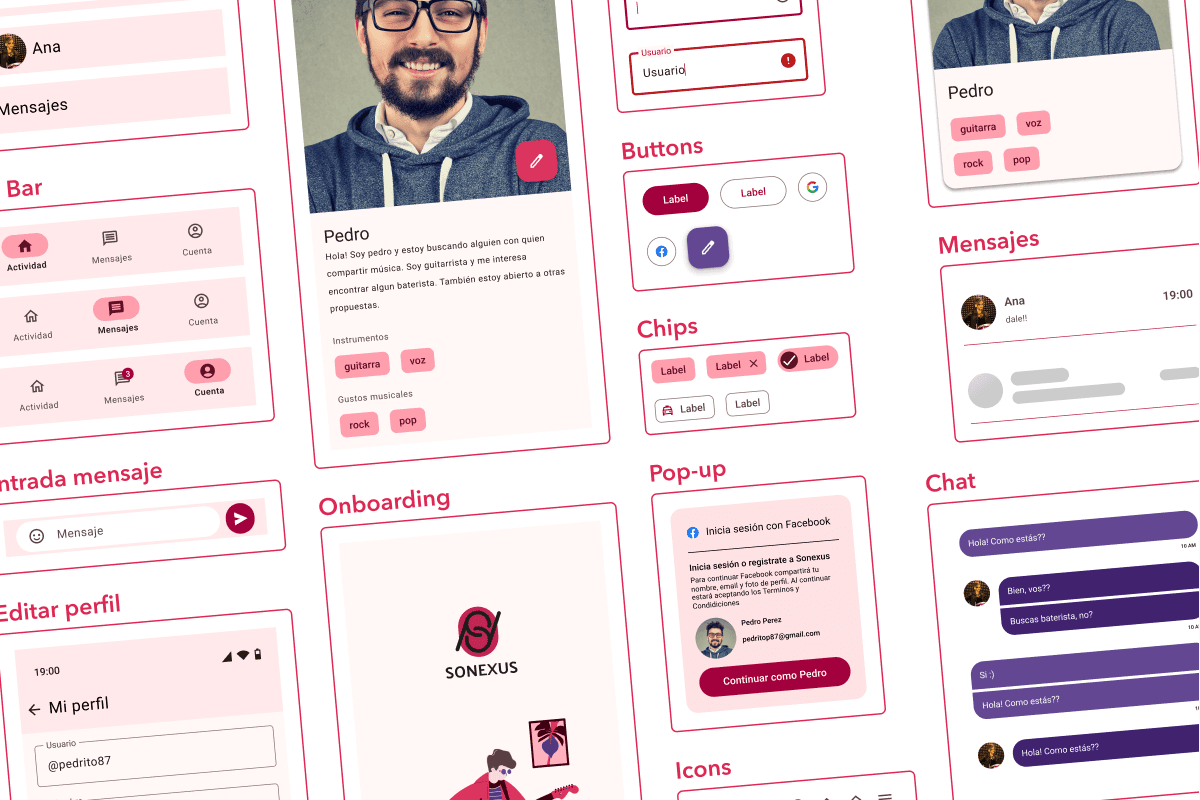Sonexus
A platform designed to help musicians connect, collaborate, and build their network.
In a Nutshell
This project focuses on the design of Sonexus, an app designed to facilitate connections between musicians. From identifying the problem to outlining each stage of the creation process, the study details the development of a platform that enables musicians to easily meet and collaborate. The goal is to offer an effective tool for connecting musicians, promoting in-person meetups and creative collaborations.
Understanding the Problem
For musicians, networking is essential, but not everyone has access to an established community. Many rely on social media or word-of-mouth, which can be inefficient or limiting. This project examines how an intuitive app can fill the gap by providing a dedicated space for musicians to discover and connect with others based on their skills, interests, and availability.
Crafting the Solution
Through user research, wireframing, and prototyping, I designed an experience that makes musician networking simple and engaging. Sonexus provides profile-based matching, messaging features, and collaboration tools tailored to different types of users—whether they’re looking for bandmates, jam sessions, or one-off collaborations.
Process
The process covered the entire design journey, from ideation to prototyping, including iterative testing and refinement. It began by defining the project's scope and laying the groundwork, followed by gathering comprehensive insights into user behavior and needs.
Research
The research stage's goal was to know as much as possible about the user and what tools they were using as a solution to their needs and problems.
Information Architecture
After defining the app's MVP, its core offerings, and key features, I began organizing its structure. This involved conducting card sorting, as well as defining user flows and task flows to ensure a clear and intuitive navigation experience.
UI Kit
This project involved not only the creation of the app but also the development of the brand. Along with establishing the brand identity, the app's style was heavily influenced by the use of a design system—in this case, Material Design. By combining the brand identity with Google's design system, I created the UI style that guided the entire design process.
Brand Identity
This image highlights the brand identity, showcasing the logo, typography, and color palette.
Test the prototype!
Conclusion & Insights
I really enjoyed working on the project because it was one of the first UX/UI projects where I worked in the whole process. It was a great opportunity to learn about Material Design guidelines.





